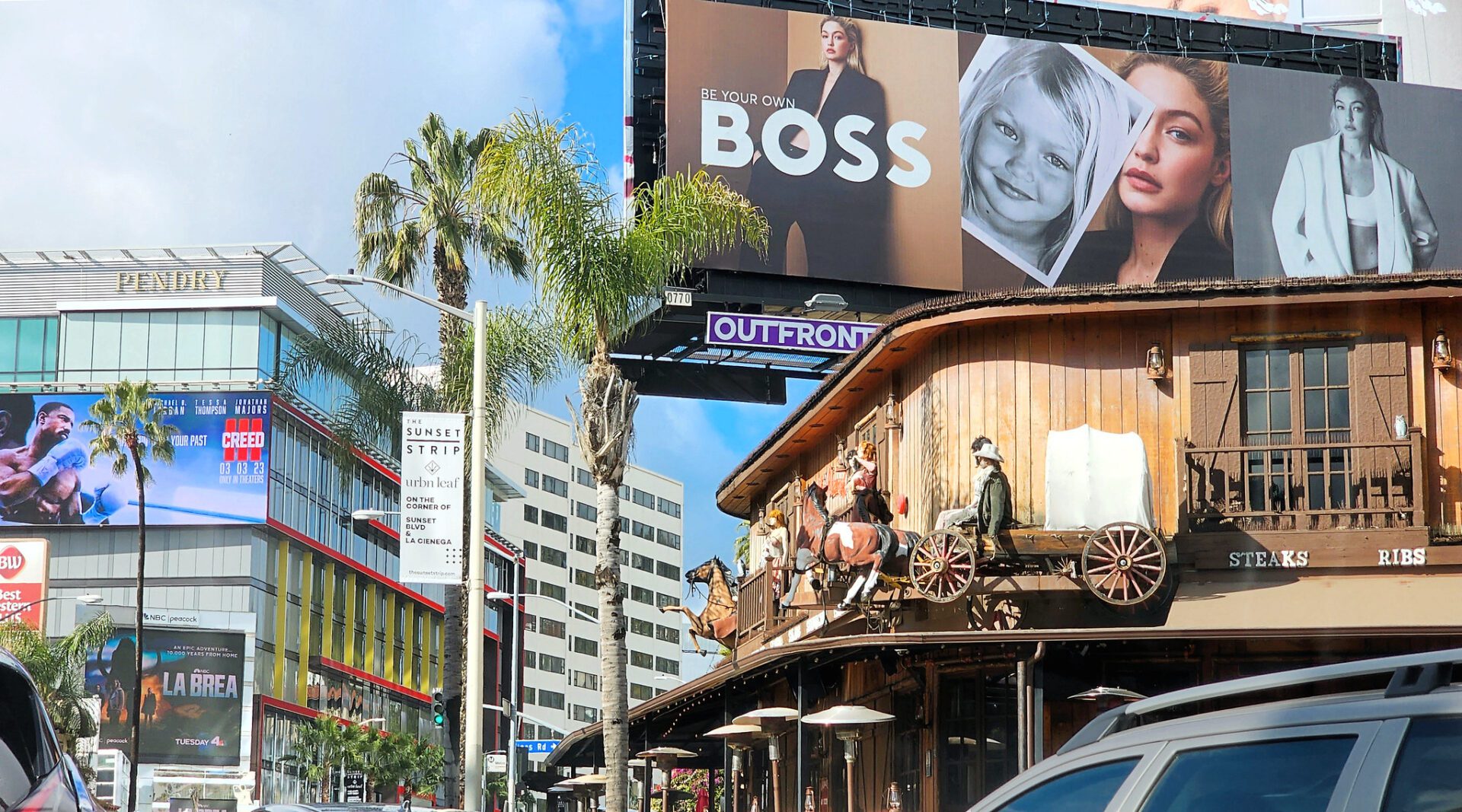 View Winners →
View Winners → 
Billboards on Sunset Strip. | Photo by Slices of Light CC BY-NC-ND 2.0 DEED
The City Council Friday approved a plan for the installation of about 80 digital billboards on properties owned by Metro throughout the city.
Council members voted 10-4 to amend city law to establish the Transportation Communication Network, a Metro program that will establish a network of transportation communication structures and digital displays, equipped with intelligent technology components.
Council members Traci Park, Nithya Raman, Katy Yaroslavsky and Eunisses Hernandez voted against the item, and Councilman Curren Price was absent during the meeting.
In an earlier vote during Friday’s council meeting, council members voted 9-4, with council members Price and Marqueece Harris-Dawson absent during the vote.
According to a report from City Planning, the new digital displays are intended to “promote roadway efficiency, improve public safety, augment existing communication capacity related to transportation and provide outdoor advertising to generate revenue to fund new and expanded transportation programs.”
Under the program, nearly 200 existing, non-electric billboards would be removed in exchange for these new digital signs.
The transit agency previously reported that the estimated revenue generated from the program will be about $500 million over 20 years, and it would be split evenly between Metro and the city.
Digital billboards will go up at or near city landmarks and Metro stations, such as Union Station, Pershing Square, Universal Studios, LAX and adjacent to freeways.
Councilman Kevin de Leon, whose 14th District encompasses areas such as downtown L.A., Boyle Heights and El Serreno, had previous concerns with the plans because his district has historically “endured billboard lights without reaping any of the tangible community benefits.”
“This proposal has my support because it finally empowers us to negotiate terms that work to our advantage, like eliminating dozens or more of existing static billboards, especially in residential neighborhoods and relocate new ones near freeways in commercial zones,” de Leon said prior to the vote.
Metro owns a lot of property in and around downtown L.A., he added, which is the reason why there are so many in his district.
The councilman noted the revenue aspect of the plan was separated, and council members will be able to discuss down the line how they want to use the funds generated by the program.
It was previously noted the revenue would be solely used for transportation-related services or projects, but that may no longer be the case.
The City Council previously approved the proposal last week, but it required a second vote as it would require an update to city law.
While Metro and several city leaders said they are excited about the TCN, and how it can serve as a funding source for transportation programs and services, there were several people who opposed the project.
Dustin Batton, executive director of Scenic Los Angeles, part of the national nonprofit Scenic America, told City Council last week he could not begin to “express our disappointment on the rushed effort to slam this ordinance through committees and council.”
“This contract is currently 20 years long. None of you will be on the council in 20 years, but all of us will be impacted by your decision,” Batton said.
He added, “We do not want more billboards in Los Angeles.”
Batton noted Scenic Los Angeles galvanized its supporters to send in more than 13,000 individual letters to council offices, expressing opposition to the TCN.
Several Angelenos from across the city also spoke out against the plan. Many of them said the digital signs would be a blight on the roads and the views of the city, and they also worried the signs could distract drivers — leading to an increase in vehicle collisions.







































































































